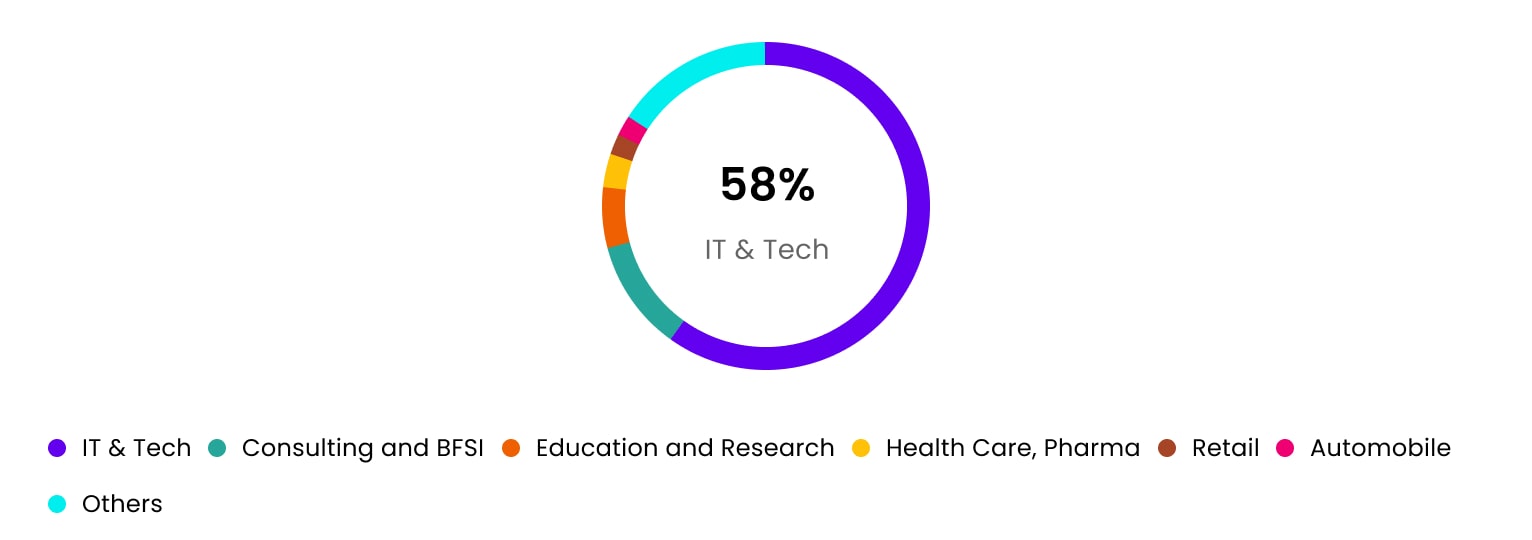Learn more about the course
Get details on syllabus, projects, tools, and more

Data Science and Machine Learning: Making Data-Driven Decisions
Build industry-valued AI, Data Science, and Machine Learning skills
Application closes 19th Feb 2026
Upskill in AI, Data Science & ML
-

Live Mentorship from Industry Practitioners
Join weekend live virtual sessions with AI, data science and machine learning professionals. Benefit from real-time guidance from experienced practitioners at global organizations.
-

Modules on Responsible AI and Generative AI
Deepen understanding of ethical AI with the Responsible AI module and explore innovations in Generative AI, covering tools, techniques, and real-world applications.
Program Outcomes
Key takeaways for career success in AI, Data Science, and Machine Learning
Designed for learners to gain hands-on experience and build industry-valued skills
Earn a certificate of completion from MIT IDSS
Key program highlights
Why choose the AI and Data Science program
-

Learn from MIT faculty
Learn from the vast knowledge of MIT AI, Data Science and Machine Learning faculty through recorded sessions.
-

Collaborative peer networking
Engage in a collaborative environment, networking with global AI, Data Science, and Machine Learning peers.
-

Build your AI, Data Science, and Machine Learning portfolio
Showcase your AI and Data Science skills with 3 real-world projects and 50+ hands-on case studies in your e-portfolio.
-

Personalized mentorship sessions
Benefit from personalized weekend mentorship by experienced AI, Data Science and ML practitioners from leading global organizations.
-

Dedicated program support
Connect with dedicated program managers to assist with queries and guide you throughout the course.
-

Generative AI masterclasses
Get access to 3 masterclasses on Generative AI and its use cases by industry experts.
Skills you will learn
Python
Machine Learning
Deep Learning
Recommendation Systems
Computer Vision
Predictive Analytics
Generative AI
Prompt Engineering
Retrieval-Augmented Generation
Ethical AI
Python
Machine Learning
Deep Learning
Recommendation Systems
Computer Vision
Predictive Analytics
Generative AI
Prompt Engineering
Retrieval-Augmented Generation
Ethical AI
view more
- Overview
- Curriculum
- Projects
- Tools
- Certificate
- Faculty
- Mentors
- Reviews
- Fees
- FAQ

This program is ideal for
Professionals ready to advance their skills in AI, Data Science, and Machine Learning
View Batch Profile
-
Building Expertise for AI-driven Roles
Professionals looking to build expertise in AI, Data Science, and Machine Learning through hands-on projects and real-world applications.
-
Driving Actionable Insights
Individuals seeking to enhance their ability to turn complex data into actionable insights for better business decision-making.
-
Leading AI Initiatives
Professionals aiming to lead or contribute to AI and Data Science initiatives across industries.
-
Solving Business Challenges
Professionals interested in applying advanced AI techniques like Generative AI, Deep Learning, and Recommendation Systems to solve business challenges.
Program Curriculum
Developed by MIT IDSS faculty, this 12-week curriculum immerses you in today’s most cutting-edge data science and AI technologies - from machine learning and deep learning to recommendation systems, network analytics, time-series forecasting, and the transformative capabilities of ChatGPT and Generative AI.
Pre-work
Foundations of Data Science and AI
Begin your learning journey with foundational concepts in data, Python programming, and Generative AI. This is a pre module to prepare you for the advanced modules on Data Science and AI, reinforcing essential mathematical and statistical principles needed for the weeks ahead.
- Introduction to the World of Data
- Introduction to Python
- Introduction to Generative AI
- Applications of Data Science and AI
- Data Science Lifecycle
- Mathematics and Statistics behind Data Science and AI
- History of Data Science and AI
Week 0: Data Science and AI Applications
In this module, you will:
- Understand the end-to-end lifecycle of an AI application
- Analyze real-world case studies to explore business impact
- Learn how data-driven decisions are made in different industries
- Explore how AI enables innovation, efficiency, and value creation
- Prepare for hands-on learning with a strategic view of AI’s role in business
Week 1-2: Foundations of AI
This module is focussed on building your foundations of AI, you will learn:
Python for Data Science
- NumPy
- Pandas
- Data Visualization
Stats for Data Science
- Descriptive Statistics
- Inferential Statistics
Week 3: Masterclass on Data Analysis with Generative AI
In this Generative AI masterclass taken by experts, you will explore the use cases of Generative AI. Learn practical techniques to integrate GenAI into your data workflows.
Week 4: Making Sense of Unstructured Data
Supervised & Unsupervised Learning
- Understand the fundamental differences between supervised and unsupervised learning.
- Learn the key concepts of classification and clustering techniques
- Identify suitable methods based on the nature of the data and the problem context
Dimensionality Reduction Techniques
- Master Principal Component Analysis (PCA) for simplifying high-dimensional data
- Explore t-SNE for visualizing complex datasets effectively
- Learn when and why dimensionality reduction is essential for pattern recognition
- Explore the core principles and steps involved in the K-Means Clustering algorithm
- Learn how to determine the optimal number of clusters
- Understand the strengths and limitations of this algorithm in real-world scenarios
Applications and Analysis Techniques
- Discover how to identify hidden patterns in unstructured data
- Select appropriate analysis methods to solve diverse business problems
Week 5: Project Week and GenAI Masterclass
This week, you will be involved in a hands-on project focused on clustering and PCA techniques. Attend a specialized Generative AI masterclass on learning from Text Data.
- Project on Clustering and PCA
- Masterclass on Learning from Text Data
Week 6: Regression and Prediction
Classical Regression Techniques
- Understand the fundamentals of linear and non-linear regression
- Learn how to apply regression models for both prediction and inference
- Explore how regression techniques can reveal trends and forecast outcomes
Modern Regression for High-Dimensional Data
- Learn to build accurate models using high-dimensional datasets
- Apply regularization techniques like Lasso and Ridge to avoid overfitting
- Evaluate regression models using appropriate performance metrics
Causal Inference in Predictive Modeling
- Understand the principles of causal inference
- Learn to differentiate between manipulation effects and observational correlations
- Explore how to incorporate causal thinking into your regression models
Week 7: Classification and Hypothesis Testing
In this module, you will master hypothesis testing for making data-driven decisionsYou will learn classification algorithms and data categorization. Evaluate Classification Models, explore Ensemble Techniques and Decision Trees to enhance predictive accuracy and robustness.
Hypothesis Testing for Data-Driven Inference
- Explore hypothesis testing frameworks to draw meaningful conclusions from data
- Learn to make informed inferences about population parameters using statistical tests
Classification Algorithms and Data Categorization
- Understand core classification techniques used to determine class membership
- Implement algorithms for effective categorization across varied datasets
Evaluating Classification Models
- Use performance metrics such as accuracy, precision, and recall to evaluate model effectiveness
- Enhance model performance through iterative evaluation
Ensemble Learning for Robust Predictions
- Learn how combining multiple models improves accuracy
- Apply ensemble techniques like Random Forests to boost model robustness
Tree-Based Methods: Decision Trees and Random Forests
- Discover how Decision Trees structure decision-making processes
- Leverage the power of Random Forests to improve classification outcomes
Week 8: Project Week and GenAI Masterclass
This week, you will be involved in a project where you will apply your understanding of machine learning classification. Attend a masterclass on AI-powered text labeling that covers its practical implementation using Generative AI techniques.
- Project on Machine Learning Classification
- Masterclass on AI-Powered Text Labeling
Week 9: Deep Learning and Computer Vision
This week, you will explore the fundamentals of Deep Learning, the concept of neurons and Artificial Neural Networks (ANNs) function. This module will also introduce you to Computer Vision and CNN Architecture and Transfer Learning.
- Introduction to Deep Learning
- The Concept of Neurons
- Artificial Neural Networks (ANNs)
- Introduction to Computer Vision
- CNN Architecture and Transfer Learning
Week 10: Recommendation Systems
This module of data science and machine learning program will introduce you to Recommendation Systems, Statistical and Machine Learning approaches. You will explore Collaborative Filtering Techniques and learn to enhance recommendation accuracy using Data Science techniques.
Introduction to Recommendation Systems
- Understand the purpose and real-world applications of Recommender Systems
- Explore how personalization enhances user satisfaction and engagement
- Gain experience in designing recommendation pipelines using real-world datasets
- Build scalable and efficient Recommender Systems through practical exercises
Statistical and Machine Learning Approaches
- Learn basic statistical techniques for generating recommendations
- Apply Machine Learning algorithms to predict user preferences
Collaborative Filtering Techniques
- Dive into user-based and item-based Collaborative Filtering
- Understand how user behavior and preferences drive model performance
Personalization and Pattern Recognition
- Discover common design patterns and frameworks used in recommender engines
- Learn how to enhance recommendation accuracy using Data Science techniques
Week 11: Ethical and Responsible AI
This week will introduce you to the ethical implications of AI by exploring concepts such as bias, causality, and privacy. Learn about the AI lifecycle, feedback loops, and interdependencies to ensure responsible and fair AI system development and deployment.
- Introduction to AI Lifecycle
- Introduction to Bias and Its Examples
- Introduction to Causality and Privacy
- Interconnections and Domains
- Interdependency and Feedback in AI Systems
Week 12: Project Week
This week, you will involved in a project based on Recommendation Systems using real-world data.
- Project on Recommendation System
Self-Paced Modules
This Data Science and Machine Learning program will help you deepen your expertise through these self-paced modules:
Generative AI Foundations
Explore the core ideas behind modern Generative AI, from the origins of generating new data to the architectures that power today’s models. Learn how generation can be viewed as a matrix estimation problem and how large language models act as probabilistic sequence completers that fill in missing tokens coherently. Build practical intuition for prompt engineering so you can steer these models effectively for creative, analytical, and operational use cases.
Business Applications of Generative AI (Includes introduction to Agentic AI)
Learn how Generative AI powers core natural language tasks such as summarization, classification, and text generation, helping organizations distill, organize, and create content at scale. Understand Retrieval-Augmented Generation (RAG), where large language models are grounded with retrieved, domain-specific knowledge to produce more accurate, context-aware outputs suitable for enterprise use. Explore emerging Agentic AI systems that can reason, plan, and act autonomously across multi-step workflows, enabling intelligent agents to drive meaningful business actions with minimal human intervention.
Networking and Graphical Models
Predictive Analytics
Projects and Case Studies
The program follows a learn-by-doing pedagogy, helping you build your skills through real-world case studies and hands-on practice. Below are samples of potential project topics and case studies you will work on.
-
3
hands-on projects
-
50+
case studies
Languages and Tools covered
-

Python
-

NumPy
-

Keras
-

Tensorflow
-

Matplotlib
-

scikit-learn
Earn a certificate of completion from MIT IDSS
Certificate from the MIT Schwarzman College of Computing and IDSS upon successful completion of the program
-

World #1
MIT ranks #1 in World Universities – QS World University Rankings, 2025
-

U.S. #2
MIT ranks #2 among National Universities – U.S. News & World Report Rankings, 2024–2025

* Image for illustration only. Certificate subject to change.
Program Faculty
Program Mentors
Interact with dedicated and experienced industry experts who will guide you in your learning and career journey
Course fees
The course fee is USD 2,500
Invest in your career
-

Learn from world-renowned MIT IDSS faculty and top industry leaders
-

Build an impressive portfolio with 3 projects and 50+ case studies
-

Get personalized assistance with a dedicated Program Manager from Great Learning
-

Earn a certificate of completion from MIT IDSS and 8.0 Continuing Education Units (CEUs)
Third Party Credit Facilitators
Check out different payment options with third party credit facility providers
*Subject to third party credit facility provider approval based on applicable regions & eligibility
Application Process
-

1. Fill application form
Apply by filling a simple online application form.
-

2. Application Screening
A panel from Great Learning will review your application to determing your fit for the program.
-

3. Join program
After a final review, you will receive an offer for a seat in the upcoming cohort of the program.
Batch start date
-
Online · 21st Feb 2026
Admission closing soon
Frequently asked questions
What does the MIT IDSS AI and Data Science course offer?
The 12-week online AI and Data Science: Leveraging Responsible AI, Data and Statistics for Practical Impact is offered by the MIT Institute for Data, Systems, and Society (IDSS). The program offers:
- A certificate of completion from MIT IDSS and the MIT Schwarzman College of Computing
- Mentorship from experienced industry experts Recorded lectures by MIT faculty.
- Exposure to cutting-edge topics, including Generative AI, Responsible AI, Deep Learning, and more
- A comprehensive curriculum covering both foundational and advanced concepts.
- Flexibility and practical value that working professionals need.
What makes the MIT IDSS AI and Data Science program unique?
MIT IDSS AI and Data Science program is unique because of its academic rigor and industry relevance. Here are the reasons why this program stands out:
Learn from MIT Faculty
Access recorded lectures from 13 world-renowned MIT faculty and instructors who bring academic depth and industry relevance to every session.
Get Mentored by Industry Experts
Receive direct mentorship from professionals working in the world’s leading organizations as they share real-world applications of Data Science and AI concepts.
Real-World Expertise
Work on 3 hands-on projects and explore over 50 real-world case studies to strengthen your skills and demonstrate your AI and Data Science capabilities.
Explore the Future of AI
Attend 3 exclusive masterclasses on Generative AI to understand the latest developments and how they are shaping industries worldwide.
Master Key AI Concepts
Deepen your understanding of core AI concepts, including Generative AI, Recommendation Systems, Responsible AI, and Deep Learning.
Earn a Recognized Credential
Receive a Certificate of Completion from MIT IDSS and earn 8.0 Continuing Education Units (CEUs), validating your ability to apply AI and Data Science for impact.
Career Support
Benefit from dedicated career support, including tailored CV and LinkedIn profile reviews designed to support your transition or advancement in the field.
How is MIT ranked globally?
MIT is ranked #1 university in the world (QS World University Rankings) in AI and Data Science and the #2 national university in the U.S. (U.S. News & World Report). MIT Professional Education's programs reflect this leadership by integrating cutting-edge concepts and practical skill-building in these domains, enabling professionals to make data-driven decisions and lead digital transformation.
What are the learning outcomes of the MIT IDSS AI and Data Science course?
With this AI and Data Science: Leveraging Responsible AI, Data and Statistics for Practical Impact, learners will gain:
- Understand the intricacies of Data Science and Artificial Intelligence techniques and their applications to real-world problems
- Implement various Machine Learning techniques to solve complex problems and make data-driven business decisions
- Explore two major realms of Artificial Intelligence: Machine Learning and Deep Learning, and understand how they apply to domains such as Computer Vision and Recommendation Systems
- Choose how to represent your data effectively when making predictions
- Explore the practical applications of Recommendation Systems across various industries and business contexts
- Build an industry-ready portfolio of projects and demonstrate your ability to extract valuable business insights from data
Will I receive a transcript or grade sheet after completing this AI and Data Science course?
As this is not a degree program or a full-time academic offering, the university does not issue transcripts or grade sheets for this course.
However, you will receive performance scores for each assessment and module. Upon successfully completing all program requirements, you will earn a Certificate of Completion from the MIT Schwarzman College of Computing and IDSS.
What is the required weekly time commitment for this AI and Data Science program?
The program is designed for professionals and typically requires 8–12 hours per week. This includes:
- Around 2 hours of recorded faculty lectures
- 2 hours of weekend hands-on mentorship sessions (held over 7 weekends)
- Additional time for self-study, assignments, and project work
The format ensures you can balance learning with your professional responsibilities.
How is my performance evaluated in the MIT IDSS AI and Data Science: Leveraging Responsible AI, Data and Statistics for Practical Impact?
Your progress is measured through continuous assessments designed to reinforce learning and real-world application.
These include:
- Quizzes and graded assignments
- Case studies and hands-on exercises
- Capstone project to test applied understanding
This approach ensures you stay engaged. It tracks your learning outcomes throughout the 12-week program.
Do I need to bring my own laptop for this AI and Data Science online course?
Yes, having your own laptop is required for attending the program. The necessary technology requirements shall be shared during registration.
Who is the faculty of this AI and Data Science: Leveraging Responsible AI, Data and Statistics for Practical Impact?
This program is taught by renowned MIT faculty with over 120 years of collective experience in academic leadership, research, and industry collaboration. They have published award-winning papers and made significant contributions to AI, Data Science, and Machine Learning. In addition to the faculty, the course also features global industry mentors who will guide you through live, personalized mentoring sessions as you work on hands-on projects.
What is the duration of this MIT IDSS AI and Data Science Program?
The duration of the MIT IDSS AI and Data Science Program is 12 weeks.
It includes recorded lectures from award-winning MIT faculty, more than 50 real-world case studies, and 3 industry-relevant hands-on projects.
What languages and tools will I learn in this AI and Data science course?
You will learn the most in-demand languages and tools during the AI and Data Science Program, including:
- Python
- Pandas
- NumPy
- Keras
- TensorFlow
- Matplotlib
- Scikit-Learn and others.
How is the curriculum of this AI and Data Science course unique?
The curriculum, expertly crafted by MIT faculty, is designed to equip learners with industry-relevant tools and techniques, enabling them to apply these skills in AI, Data Science, Machine Learning, and Generative AI to real-world problems. Here's what makes it unique:
- Crafted by MIT faculty for academic depth and industry relevance.
- Covers complete AI and Data Science concepts from foundational techniques to advanced machine learning models, deep learning, NLP, computer vision, and recommendation systems.
- Focus on Generative AI and Responsible AI to ensure you're equipped for the next wave of innovation.
- Provides Hands-On Experience through 3 industry-relevant projects and over 50 real-world case studies.
- Built for Working Professionals with a flexible format, recorded lectures, and live weekend mentorship.
What role does Great Learning play in delivering this program?
Yes, this program is delivered by MIT IDSS in collaboration with Great Learning. As an education collaborator, Great Learning supports learners throughout their journey by providing access to experienced industry mentors, program support teams, and live personalized mentorship sessions.
Great Learning also facilitates learner engagement, offers career guidance, and ensures a seamless learning experience aligned with the high academic standards set by MIT IDSS.
Is this Data Science course online?
Yes. The program is delivered 100% online to meet the needs of working professionals. You can build practical skills in AI, Data Science, and Machine Learning from anywhere, all within a focused and efficient 12-week format.
Will I receive a certificate after completing the MIT IDSS AI and Data Science course for working professionals?
Upon successful completion of the AI and Data Science: Leveraging Responsible AI, Data and Statistics for Practical Impact, you will receive a Certificate of Completion from MIT IDSS and earn 8.0 Continuing Education Units (CEUs), validating your ability to apply AI and Data Science for impact.
Who is this program ideal for?
The AI and Data Science: Leveraging Responsible AI, Data and Statistics for Practical Impact is ideal for:
- Early-career professionals or senior managers (IT Managers, Business Intelligence Analysts, Data Science Managers, Management Consultants, and Business Managers) who want to apply AI, Data Science, and Machine Learning techniques in their firms.
- Data Scientists, Data Analysts, or Business Analysts who wish to turn vast volumes of data into valuable insights
- Entrepreneurs interested in innovation with the assistance of AI, Data Science, and Machine Learning techniques
- Those with academic or professional training in Applied Statistics or Mathematics will find the program easier to learn. However, participants without such a background can also complete the program, provided they are ready to put in extra effort. Great Learning will offer the required assistance.
What is the deadline to enroll in this AI and Data Science course from MIT IDSS?
The application process is conducted on a rolling basis and will close once the required number of candidates are enrolled. Apply early to secure your seat.
To ensure your chances of securing a seat, we encourage you to apply as early as possible.
What coding skills are helpful for an AI and Data Professional?
A successful AI and Data Professional needs a firm grasp of coding skills. Here are the key skills that help a professional learn Data Science:
- Python: Python is the most widely used language in the field of data analysis and Machine Learning.
- Foundational Knowledge of Other Languages: Familiarity with R, SQL, and SAS is essential, especially for statistical analysis and database management. Some roles may also require exposure to Java, Scala, or Julia.
- Understanding of the Data Workflow: Beyond programming, you’ll need to know how to work with tools for data acquisition, cleaning, transformation, warehousing, and visualization.
What is the registration process to pursue this online MIT IDSS AI and Data Science Program?
The registration process for this AI and Data Science program is as follows:
- Step-1: Application Form Register by completing the online application form.
- Step-2: Fill Application Screening A panel from Great Learning will assess your application based on academics, work experience, and motivation.
- Step-3: Join Program After a final review, you will receive an offer for a seat in the upcoming cohort of the program.
What is the program fee?
The total program fee is USD 2500.
Do I need to pay any additional charges for buying books, virtual learning material, or license fees?
No. All required learning materials are provided online through the Learning Management System (LMS). Because these fields continue to evolve, you will also receive a list of recommended books and resources for optional, in-depth exploration.
What are the available payment options for registering for the online Data Science course from MIT IDSS?
Applicants can pay the program fee through Bank Transfer and Credit/Debit Cards. They can also pay in easy installments using PayPal credit options and get interest-free payments for up to 6 months (Note that these services are subject to credit approval by PayPal). [For further details, please get in touch with us at dsml.mit@mygreatlearning.com]
Is there any refund policy?
Please note that submitting the registration fee constitutes enrollment in the program, and the cancellation penalties outlined below will be applied. If you are unable to attend your program, please review our dropout and refund policies below:
- Dropout requests received within 7 days of enrollment and more than 42 days prior to the commencement of the program will incur no fee. Any payment received will be refunded in full.
- Dropout requests received more than 42 days prior to the program but more than 7 days after the acceptance are subject to a cancellation fee of USD 250.
- Dropout requests received 22-41 days prior to the commencement of the program are subject to a cancellation fee equal to 50% of the program fee.
- Any dropout requests received fewer than 22 days prior to the commencement of the program are subject to a cancellation fee equal to 100% of the program fee.
- No refund will be made to those who do not engage in the program or leave before completing a program for which they have registered.
Are there any corporate sponsorship programs?
We accept corporate sponsorships and can assist you with the process. [For more information, please write to us at [dsml.mit@mygreatlearning.com]
What is the average salary of an AI, Data Science, or Machine Learning Professional?
The average salary of an AI professional is ₹170,000. For a Data Scientist, it is ₹15,50,000 and for a Machine Learning Specialist, it is ₹19,70,000.
Is there a demand for AI, Data Science, and Machine Learning specialists?
Yes, there is an increasing demand for AI, Data Science, and Machine Learning professionals across a wide range of industries, including Technology, Healthcare, Cybersecurity, Finance, Oil & Gas, Transportation, Education, Talent Acquisition, Inventory Management, E-commerce, and more.
As organizations increasingly adopt AI and data-driven decision-making, professionals skilled in AI, Data Science, Machine Learning, and Generative AI are in high demand. These skills offer strong opportunities for career growth, leadership roles, and long-term industry relevance.
Employment of data scientists is projected to grow 34 percent from 2024 to 2034, significantly faster than the average growth rate for all occupations. If you’re looking to build a future-proof career, now is the time to upskill in AI, Data Science, and Machine Learning.
How to become a Data Scientist?
To become a Data Scientist, you need to have a blend of technical expertise, analytical thinking, and real-world problem-solving skills. If you have a strong academic background, that will help you learn the concepts related to the field.
Here’s how you can start:
- Build a strong foundation in mathematics, statistics, and programming.
- Gain hands-on experience with tools used in the industry.
- Develop applied knowledge through projects that simulate real-world data challenges.
- Strengthen your understanding of Generative AI, AI, and Machine Learning techniques.
Is the future of AI and data science promising?
- Growing demand in Business: Companies are leveraging AI and Data Science to reduce costs, improve marketing effectiveness, launch better products, and tap into new markets.
- Data-driven strategy making: Gartner has forecasted that many corporate strategies will highlight data and analytics as essential business competencies.
- Expanding applications: From healthcare and finance to retail and tech, Data Science is shaping decision-making and driving innovation across industries.
- Career longevity: With data at the core of digital transformation, professionals with expertise in AI, ML, and Data Science are well-positioned for long-term career growth.
As industries increasingly rely on data to drive innovation and growth, the need for skilled Data Science professionals will only continue to rise.
Gaining expertise in Artificial Intelligence, Machine Learning, and Data Science is a smart investment for you to future-proof your career.
What is Machine Learning?
Machine Learning refers to a group of techniques used by data scientists that allow computers to learn from data. From leisure to work, our lives are made easier with Machine Learning. The responsibilities of a Machine Learning specialist encompass a spectrum that extends from creating Machine Learning models to retraining systems.
What is Data Science?
Data Science is a field of study that uses a scientific approach to extract meaningful insights from data. Meaningful insights are derived from data sets, generating knowledge that advises recommendations for business growth.
Why choose Data Science and Machine Learning?
Organizations across industries increasingly rely on advanced Data Science and Machine Learning to drive strategic decision-making and improve business outcomes. Here’s how Data Science and Machine Learning create impact.
Inform stronger business strategies.
Leading companies use data-driven insights and machine learning models to design effective business plans, optimize operations, and accelerate growth.
Deliver solutions that meet customer needs.
Organizations with clear data strategies can anticipate market trends, innovate faster, and build products that offer greater value to end users.
Reduce operational costs.
For small and medium-sized enterprises, AI, Data Science, and Machine Learning enable more efficient processes and cost-effective solutions, helping them stay competitive despite limited resources.
This combination of strategic insight, customer-centric innovation, and operational efficiency is why Data Science and Machine Learning have become essential capabilities for modern businesses.
Delivered in Collaboration with:
MIT Institute for Data, Systems, and Society (IDSS) is collaborating with online education provider Great Learning to offer AI and Data Science: Leveraging Responsible AI, Data and Statistics for Practical Impact. This program leverages MIT's leadership in innovation, science, engineering, and technical disciplines developed over years of research, teaching, and practice. Great Learning collaborates with institutions to manage enrollments (including all payment services and invoicing), technology, and participant support. Accessibility
Batch Profile
The Data Science and Machine Learning class consists of working professionals from excellent organizations and backgrounds maintaining an impressive diversity across work experience, roles and industries.

Industry Diversity

Educational background

Introduction to the Data Science & Machine Learning Course from MIT for Working Professionals
Numerous professional courses are available across the globe for Data Science and Machine Learning. Yet, there are several reasons for working professionals to register in this Machine Learning and Data Science professional certificate program from MIT IDSS, collaborating with Great Learning. The reasons are drafted below:
-
MIT is an abbreviation of the Massachusetts Institute of Technology, one of the world's highest-ranked institutions.
-
According to rankings by QS World University Rankings 2023, MIT has ranked #1 university globally, and according to rankings by the U.S. News and World Report 2023, MIT is ranked #2 in the world.
-
The objective of MIT IDSS is to extend education and research in state-of-the-art analytical techniques in statistics and data science, information and decision systems, and the social sciences, and to apply these techniques to address complex societal challenges in a miscellaneous set of areas like finance, urbanization, social networks, energy systems, and health.
Benefits of Pursuing MIT Data Science Certificate Course
-
Pursue the MIT Data Science certificate course and learn these cutting-edge technologies from 11 award-winning MIT faculty and instructors.
-
These award-winning MIT faculty members have designed the curriculum to build industry-valued skills.
-
You can demonstrate your Data Science and Machine Learning Leadership by creating a portfolio of 15+ case studies and 3 real-life projects.
-
You will work in a robust collaborative environment to communicate with peers in Data Science and Machine Learning.
-
Obtain live mentorship sessions and guidance from Machine Learning and Data Science professionals on applying concepts taught by the faculties.
Alumni IDSS Benefits
Have a glance at the benefits offered by IDSS alumni:
-
Participants can obtain exclusive discounts on present and future courses offered by MIT IDSS.
-
Participants can acquire a subscription to MIT IDSS alumni mailing and newsletter lists.
-
Participants can acquire membership to advance notice of upcoming events and courses.
Details about MIT Data Science Course
In this comprehensive MIT Data Science online course, the participants will grasp all the critical skills required to master Data Science and Machine Learning. Let’s go through the extensive details about the course in Data Science for working professionals:
Course Learnings:
-
Obtain an understanding of the intricacies of Data Science tools, techniques, and their significance to real-world problems.
-
Learn the procedure to implement several Machine Learning techniques for solving complex problems and making data-driven business decisions.
-
Explore two noteworthy realms of Machine Learning, Deep Learning & Neural Networks, and learn how to apply these techniques to areas like Computer Vision.
-
Choose the process of representing your data while making predictions.
-
Obtain an understanding of the theory behind recommendation systems and analyze their applications to numerous industries and business contexts.
-
Learn the method to create an industry-ready portfolio of projects for demonstrating your ability to derive business insights from data.
Course Syllabus:
-
It commences with the fundamentals of Python programming language (NumPy, Pandas, and Data Visualization) and Statistics for Data Science.
-
Afterward, participants will learn Machine Learning techniques, including Supervised and Unsupervised Learning Techniques, Clustering, Regression, Decision Trees, Random Forests, Classification and Hypothesis Testing, and several other algorithms.
-
Moving forward, participants will learn Deep Learning, Recommendation Systems, Networking & Graphical Models, Predictive Analysis, and Feature Engineering.
[Explore MIT Data Science Course Syllabus]
Course Eligibility:
-
Working professionals, such as early-career professionals or senior managers who want to pursue a career in Data Science and Machine Learning
-
Working professionals like Data Scientists, Data Analysts, or ML Engineers interested in leading Data Science and Machine Learning initiatives at their firms or businesses
-
Entrepreneurs interested in innovation with the assistance of Data Science and Machine Learning techniques
MIT Data Science for Working Professionals Course Duration
This professional course is for 12 weeks with recorded lectures from award-winning, world-renowned MIT faculty members and live mentorship sessions from industry experts.
Secure a Data Science Professional Certificate, along with Machine Learning from MIT IDSS
After successfully pursuing this course, you will secure a professional certificate in Data Science and Machine Learning: Making Data-Driven Decisions from MIT IDSS.



 Speak with our expert
Speak with our expert



































